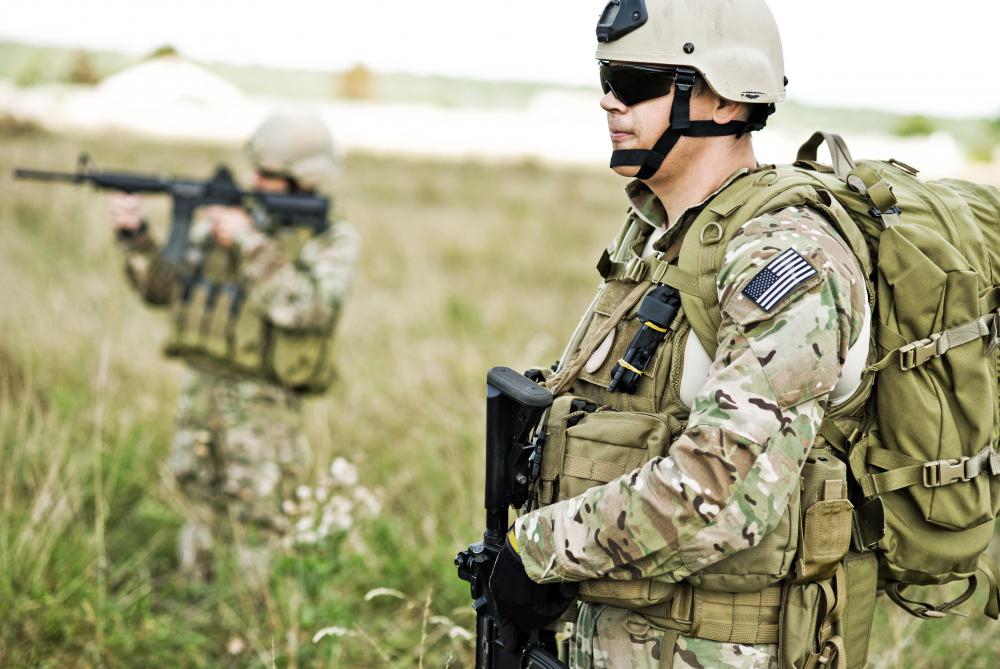At WiseGEEK, we're committed to delivering accurate, trustworthy information. Our expert-authored content is rigorously fact-checked and sourced from credible authorities. Discover how we uphold the highest standards in providing you with reliable knowledge.
What is Military Power of Attorney?
A military power of attorney is a document that authorizes someone to act as an agent on behalf of a person serving as a member of the U.S. armed forces. A person that signs a military power of attorney is called a grantor. The person that is authorized under a power of attorney to make legally binding decisions on behalf of the grantor is called an attorney-in-fact. An attorney-in-fact is not required to be an actual attorney but can be any trusted person. The document authorizes the attorney-in-fact to act on behalf of the grantor in various types of matters such as cashing paychecks, executing contracts, transferring property, registering vehicles, or any other act authorized under the document.
A person usually signs a military power of attorney because he or she is being deployed overseas and unable to take care of personal or business affairs. The power of attorney enables military personnel to designate a someone else to handle such matters. The form used as a military power of attorney grants broad authority to an attorney-in-fact, which enables that person to take care of many types of matters. The grantor may also modify the document to limit the authority granted to a person serving as the attorney-in-fact. For instance, the grantor may restrict the type of actions that may be taken under the document.

A military power of attorney generally operates in the same manner as a power of attorney authorized by civilian law. A military power of attorney often does not have to comply with the requirements of civilian law in terms of its form and substance. A person must sign a military power of attorney before a notary, however. A notary is a person authorized law to certify the the identity of a person signing a document and to put that person under oath to swear to the truth of the document.

This legal document will remain in effect if the grantor becomes physically or mentally incapacitated, which means that the grantor is no longer capable of make decisions. A person signing a power of attorney may also specify a date when the document expires. The grantor may also revoke the military power of attorney at any time; this means the authority granted under the document can be canceled and the grantor can resuming making decisions for him- or herself. The grantor may do this by informing the attorney-in-fact that he or she is no longer authorized to act under the authority of the document.
AS FEATURED ON:
AS FEATURED ON:













Discussion Comments
@Soulfox -- I think what they are referring to as a military power of attorney in this article is essentially the same as a durable power of attorney. I really can't tell any difference.
A durable power of attorney gives the attorney in fact broad powers over the affairs of the grantor that last even if the grantor is incapacitated. Also, the grantor can revoke the durable power of attorney at any time (well, not if he or she is incapacitated, of course).
I don't know. Those both look exactly the same to me.
I really don't understand the difference between a military power of attorney and a regular power of attorney. Couldn't you achieve the same thing with a typical power of attorney or is there something terribly unique about a military power of attorney?
Post your comments